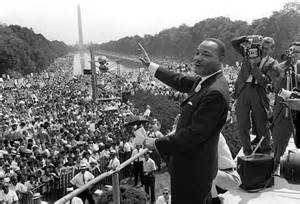In the famous “I Have a Dream” speech of Rev. Martin Luther King, Jr., he referenced the U.S. Declaration of Independence and Constitution, and their promises of equal rights for all men. He referenced these documents as a “promissory note” guaranteeing “the unalienable rights of life, liberty and the pursuit of happiness.” He proclaimed, “I have a dream that one day this nation will rise up, live out the true meaning of its creed: ‘We hold these truths to be self-evident, that all men are created equal.’”
The constitutions of Texas have acknowledged the same principle, though history has shown that the vindication of those rights often has been far from the promise.
In the 1836 Constitution of the Republic of Texas, the first item in the Declaration of Rights stated: “All men, when they form a social compact, have equal rights, and no man or set of men are entitled to exclusive public privileges or emoluments from the community.”
The reference to “All men” was modified in the 1845 Constitution of the State of Texas, where section 2 of the Bill of Rights provided: “All freemen, when they form a social compact, have equal rights; and no man or set of men is entitled to exclusive, separate public emoluments or privileges, but in consideration of public services.” (Emphasis supplied.) The 1845 Convention formed a Committee on General Provisions which was tasked with reporting a proposed “Bill of Rights,” and the precise language ultimately included in the 1845 Bill of Rights was included in the version reported by the committee on July 11, 1845. A substitute version of section 2 offered on July 16, 1845 would have substituted the language “all citizens have equal rights, and no man, or class of men is entitled to exclusive, separate emoluments or privileges,” but the substitute was rejected.
The 1845 “equal rights” provision was maintained, verbatim, in the 1861, 1866 1869 Constitutions. The text was very slightly modified in the 1876 Constitution to its present formulation (Art. I, sec. 3): “All free men, when they form a social compact, have equal rights, and no man, or set of men, is entitled to exclusive separate public emoluments, or privileges, but in consideration of public services.”
Article I, section 3 was supplemented in 1972 by the adoption of the Equal Rights Amendment as section 3a of the Texas Bill of Rights. It made explicit what should have been implied (indeed, was “unalienable” and “self-evident”) from the beginning: “Equality under the law shall not be denied or abridged because of sex, race, color, creed, or national origin. This amendment is self-operative.”
